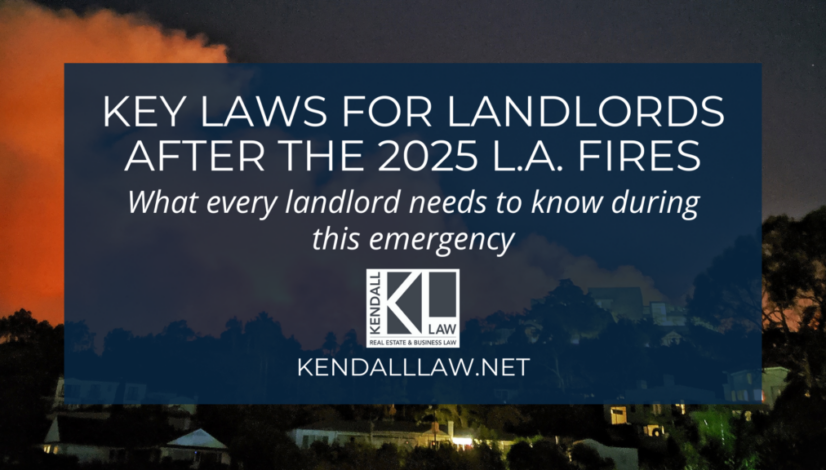Key Laws for Landlords After the 2025 L.A. Fires
In the wake of the devastating 2025 L.A. fires, rental housing providers must navigate emergency regulations designed to protect tenants while maintaining compliance with state and local laws. Here’s what every landlord needs to know during this emergency.
Anti-Price Gouging Law
To prevent rent exploitation during crises, rent increases are capped at 10% across all rental units, including short-term leases. Violating this law could result in fines of up to $10,000 or even jail time. The current cap is in place until March 8, 2025, with the possibility of further extensions.
State and Local Rent Control Laws
Beyond the emergency price cap, local rent control laws may impose stricter limits on increases. Many properties built before 1995 fall under rent control, and state law (AB 1482) caps annual increases at 5% plus CPI, or 10%, whichever is lower. Landlords should review local ordinances to ensure compliance.
Temporary Eviction Rules in Effect
Emergency protections have been enacted to prevent evictions for tenants who host wildfire victims or pets. These measures remain in effect until March 8, 2025, with additional restrictions in cities like Los Angeles and Santa Monica.
State & Local Just Cause Eviction Laws
Landlords may only proceed with evictions for specific legal reasons, such as nonpayment of rent or lease violations. For “no-fault” evictions, relocation assistance is required. However, requirements vary by city, so landlords must check local ordinances before taking action.
Stay Informed and Compliant
To ensure compliance during this emergency, landlords should:
- Review resources at caanet.org
- Use local rent control charts and just cause eviction guides
- Consult Kendall Law for expert legal guidance
Navigating these evolving regulations can be complex, but staying informed is key to protecting your rights and your rental business. If you need personalized legal assistance, Kendall Law is here to help. Contact us or call 310-619-4941 to schedule a consultation.
Please note that the information provided at this website is intended for general educational and informational purposes only, and should not be construed as legal advice or a substitute for legal advice from a qualified attorney in your jurisdiction.
Author: Eileen Kendall





